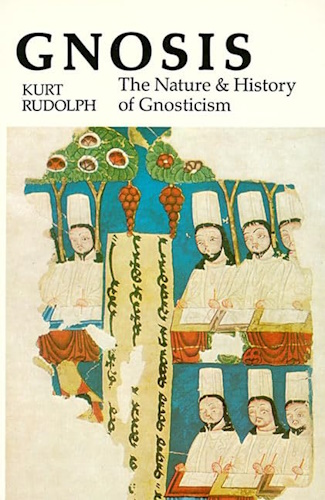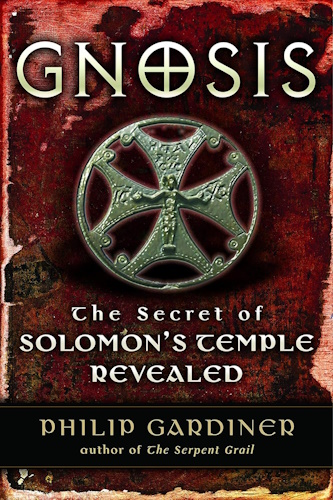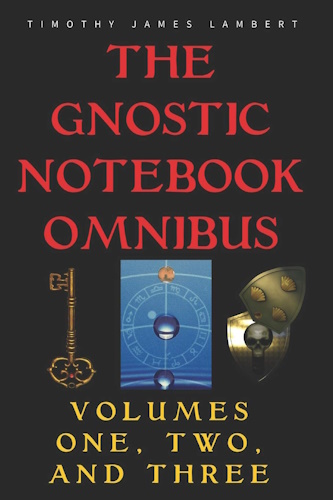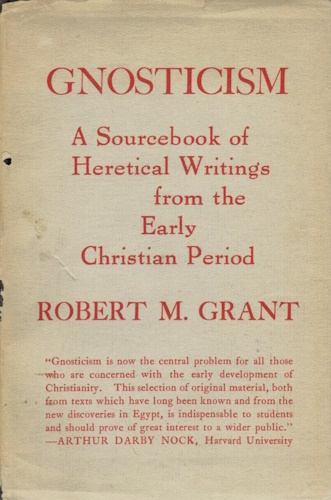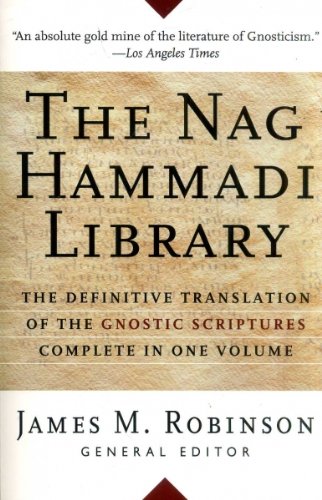
Asclepius 21-29
Translated by James Brashler, Peter A. Dirkse, and Douglas M. Parrott
"And if you (Asclepius) wish to see the reality of this mystery, then you should see the wonderful representation of the intercourse that takes place between the male and the female. For when the semen reaches the climax, it leaps forth. In that moment, the female receives the strength of the male; the male, for his part, receives the strength of the female, while the semen does this.
"Therefore, the mystery of intercourse is performed in secret, in order that the two sexes might not disgrace themselves in front of many who do not experience that reality. For each of them (the sexes) contributes its (own part in) begetting. For if it happens in the presence of those who do not understand the reality, (it is) laughable and unbelievable. And, moreover, they are holy mysteries, of both words and deeds, because not only are they not heard, but also they are not seen.
"Therefore, such people (the unbelievers) are blasphemers. They are atheistic and impious. But the others are not many; rather, the pious who are counted are few. Therefore, wickedness remains among (the) many, since learning concerning the things which are ordained does not exist among them. For the knowledge of the things which are ordained is truly the healing of the passions of the matter. Therefore, learning is something derived from knowledge.
"But if there is ignorance, and learning does not exist in the soul of man, (then) the incurable passions persist in it (the soul). And additional evil comes with them (the passions), in the form of an incurable sore. And the sore constantly gnaws at the soul, and through it the soul produces worms from the evil, and stinks. But God is not the cause of these things, since he sent to men knowledge and learning.
"Trismegistus, did he send them to men alone?"
"Yes, Asclepius, he sent them to them alone. And it is fitting that we tell you why to men alone he granted knowledge and learning, the allotment of his good.
"And now listen! God and the Father, even the Lord, created man subsequent to the gods, and he took him from the region of matter. Since matter is involved in the creation of man, of [...], the passions are in it. Therefore, they continually flow over his body, for this living creature would not have existed in any other way except that he had taken this food, since he is mortal. It is also inevitable that inopportune desires, which are harmful, dwell in him. For the gods, since they came into being out of a pure matter, do not need learning and knowledge. For the immortality of the gods is learning and knowledge, since they came into being out of pure matter. It (immortality) assumed for them the position of knowledge and learning. By necessity, he (God) set a boundary for man; he placed him in learning and knowledge.
"Concerning these things (learning and knowledge) which we have mentioned from the beginning, he (God) perfected them in order that by means of these things he might restrain passions and evils, according to his will. He brought his (man's) mortal existence into immortality; he (man) became good (and) immortal, just as I have said. For he (God) created (a) two-fold nature for him: the immortal and the mortal.
"And it happened this way because of the will of God that men be better than the gods, since, indeed, the gods are immortal, but men alone are both immortal and mortal. Therefore, man has become akin to the gods, and they know the affairs of each other with certainty. The gods know the things of men, and men know the things of the gods. And I am speaking about men, Asclepius, who have attained learning and knowledge. But (about) those who are more vain than these, it is not fitting that we say anything base, since we are divine and are introducing holy matters.
"Since we have entered the matter of the communion between the gods and men, know, Asclepius, that in which man can be strong! For just as the Father, the Lord of the universe, creates gods, in this very way man too, this mortal, earthly, living creature, the one who is not like God, also himself creates gods. Not only does he strengthen, but he is also strengthened. Not only is he god, but he also creates gods. Are you astonished, Asclepius? Are you yourself another disbeliever like the many?"
"Trismegistus, I agree with the words (spoken) to me. And I believe you as you speak. But I have also been astonished at the discourse about this. And I have decided that man is blessed, since he has enjoyed this great power."
"And that which is greater than all these things, Asclepius, is worthy of admiration. Now it is clear to us concerning the race of the gods, and we confess it along with everyone else, that it (the race of the gods) has come into being out of a pure matter. And their bodies are heads only. But that which men create is the likeness of the gods. They (the gods) are from the farthest part of the matter, and it (the object created by men) is from the outer (part) of the being of men. Not only are they (what men created) heads, but (they are) also all the other members of the body, and according to their likeness. Just as God has willed that the inner man be created according to his image, in the very same way, man on earth creates gods according to his likeness."
"Trismegistus, you are not talking about idols, are you?"
"Asclepius, you yourself are talking about idols. You see that again, you yourself, Asclepius, are also a disbeliever of the discourse. You say about those who have soul and breadth, that they are idols - these who bring about these great events. You are saying about these who give prophecies that they are idols - these who give men sickness and healing that [...] them.
"Or are you ignorant, Asclepius, that Egypt is (the) image of heaven? Moreover, it is the dwelling place of heaven and all the forces that are in heaven. If it is proper for us to speak the truth, our land is (the) temple of the world. And it is proper for you not to be ignorant that a time will come in it (our land, when) Egyptians will seem to have served the divinity in vain, and all their activity in their religion will be despised. For all divinity will leave Egypt, and will flee upward to heaven. And Egypt will be widowed; it will be abandoned by the gods. For foreigners will come into Egypt, and they will rule it. Egypt! Moreover, Egyptians will be prohibited from worshipping God. Furthermore, they will come into the ultimate punishment, especially whoever among them is found worshipping (and) honoring God.
"And in that day, the country that was more pious than all countries will become impious. No longer will it be full of temples, but it will be full of tombs. Neither will it be full of gods, but (it will be full of) corpses. Egypt! Egypt will become like the fables. And your religious objects will be [...] the marvelous things, and [...], and if your words are stones and are wonderful. And the barbarian will be better than you, Egyptian, in his religion, whether (he is) a Scythian, or the Hindus, or some other of this sort.
"And what is this that I say about the Egyptian? For they (the Egyptians) will not abandon Egypt. For (in) the time (when) the gods have abandoned the land of Egypt, and have fled upward to heaven, then all Egyptians will die. And Egypt will be made a desert by the gods and the Egyptians. And as for you, River, there will be a day when you will flow with blood more than water. And dead bodies will be (stacked) higher than the dams. And he who is dead will not be mourned as much as he who is alive. Indeed, the latter will be known as an Egyptian on account of his language in the second period (of time). -Asclepius, why are you weeping? - He will seem like (a) foreigner in regard to his customs. Divine Egypt will suffer evils greater than these. Egypt - lover of God, and the dwelling place of the gods, school of religion - will become an example of impiousness.
"And in that day, the world will not be marveled at, [...] and immortality, nor will it be worshiped [...], since we say that it is not good [...]. It has become neither a single thing nor a vision. But it is in danger of becoming a burden to all men. Therefore, it will be despised - the beautiful world of God, the incomparable work, the energy that possesses goodness, the man-formed vision. Darkness will be preferred to light, and death will be preferred to life. No one will gaze into heaven. And the pious man will be counted as insane, and the impious man will be honored as wise. The man who is afraid will be considered as strong. And the good man will be punished like a criminal.
"And concerning the soul, and the things of the soul, and the things of immortality, along with the rest of what I have said to you, Tat, Asclepius, and Ammon -not only will they be considered ridiculous, but they will also be thought of as vanity. But believe me (when I say) that people of this kind will be endangered by the ultimate danger to their soul. And a new law will be established ... (2 lines missing) ... they will ... (line missing) ... good. The wicked angels will remain among men, (and) be with them, (and) lead them into wicked things recklessly, as well as into atheism, wars, and plunderings, by teaching them things contrary to nature.
"In those days, the earth will not be stable, and men will not sail the sea, nor will they know the stars in heaven. Every sacred voice of the word of God will be silenced, and the air will be diseased. Such is the senility of the world: atheism, dishonor, and the disregard of noble words.
"And when these things had happened, Asclepius, then the Lord, the Father and god from the only first god, the creator, when he looked upon the things that happened, established his design, which is good, against the disorder. He took away error, and cut off evil. Sometimes, he submerged it in a great flood; at other times, he burned it in a searing fire; and at still other times, he crushed it in wars and plagues, until he brought ... (4 lines missing) ... of the work. And this is the birth of the world.
"The restoration of the nature of the pious ones who are good will take place in a period of time that never had a beginning. For the will of God has no beginning, even as his nature, which is his will (has no beginning). For the nature of God is will. And his will is the good."
"Trismegistus, is purpose, then, (the same as) will?"
"Yes, Asclepius, since will is (included) in counsel. For <he> (God) does not will what he has from deficiency. Since he is complete in every part, he wills what he (already) fully has. And he has every good. And what he wills, he wills. And he has the good that he wills. Therefore, he has everything. And God wills what he wills. And the good world is an image of the Good One."
"Trismegistus, is the world good?"
"Asclepius, it is good, as I shall teach you. For just as ... (2 lines missing) ... of soul and life [...] of the world [...] come forth in matter, those that are good, the change of the climate, and beauty, and the ripening of the fruits, and the things similar to all these. Because of this, God has control over the heights of heaven. He is in every place, and he looks out over every place. And (in) his place there is neither heaven nor star. And he is free from (the) body.
"Now the creator has control in the place that is between the earth and heaven. He is called 'Zeus', that is, 'Life'. Plutonius Zeus is lord over the earth and sea. And he does not possess the nourishment for all mortal living creatures, for (it is) Kore who bears the fruit. These forces always are powerful in the circle of the earth, but those of others are always from Him-who-is.
"And the lords of the earth will withdraw themselves. And they will establish themselves in a city that is in a corner of Egypt and that will be built toward the setting of the sun. Every man will go into it, whether they come on the sea or on the shore."
"Trismegistus, where will these be settled now?"
"Asclepius, in the great city that is on the Libyan mountain ... (2 lines missing) ... it frightens [...] as a great evil, in ignorance of the matter. For death occurs, which is the dissolution of the labors of the body, and the number (of the body), when it (death) completes the number of the body. For the number is the union of the body. Now the body dies when it is not able to support the man. And this is death: the dissolution of the body and the destruction of the sensation of the body. And it is not necessary to be afraid of this, nor because of this, but because of what is not known, and is disbelieved (is one afraid)."
"But what is not known, or is disbelieved?"
"Listen, Asclepius! There is a great demon. The great God has appointed him to be overseer or judge over the souls of men. And God has placed him in the middle of the air, between earth and heaven. Now when the soul comes forth from (the) body, it is necessary that it meet this daimon. Immediately, he (the daimon) will surround this one (masc.), and he will examine him in regard to the character that he has developed in his life. And if he finds that he piously performed all of his actions for which he came into the world, this (daimon) will allow him ... (1 line missing) ... turn him [...]. But if he sees [...] in this one [...] he brought his life into evil deeds, he grasps him, as he flees upward, and throws him down, so that he is suspended between heaven and earth, and is punished with a great punishment. And he will be deprived of his hope, and will be in great pain.
"And that soul has been put neither on the earth nor in heaven, but it has come into the open sea of the air of the world, the place where there is a great fire, and crystal water, and furrows of fire, and a great upheaval. The bodies are tormented (in) various (ways). Sometimes they are cast down into the fire, in order that it may destroy them. Now, I will not say that this is the death of the soul, for it has been delivered from evil, but it is a death sentence.
"Asclepius, it is necessary to believe these things and to fear them, in order that we might not encounter them. For unbelievers are impious, and commit sin. Afterwards, they will be compelled to believe, and they will not hear by word of mouth only, but will experience the reality itself. For they kept believing that they would not endure these things. Nor only ... (1 line missing). First, Asclepius, all those of the earth die, and those who are of the body cease [...] of evil [...] with these of this sort. For those who are here are not like those who are there. So with the daimons who [...] men, they despite [...] there. Thus, it is not the same. But truly, the gods who are here will punish more whoever has hidden it here every day."
"Trismegistus, what is the character of the iniquity that is there?"
"Now you think, Asclepius, that when one takes something in a temple, he is impious. For that kind of a person is a thief and a bandit. And this matter concerns gods and men. But do not compare those here with those of the other place. Now I want to speak this discourse to you confidentially; no part of it will be believed. For the souls that are filled with much evil will not come and go in the air, but they will be put in the places of the daimons, which are filled with pain, (and) which are always filled with blood and slaughter, and their food, which is weeping, mourning, and groaning."
"Trismegistus, who are these (daimons)?"
"Asclepius, they are the ones who are called 'stranglers', and those who roll souls down on the dirt, and those who scourge them, and those who cast into the water, and those who cast into the fire, and those who bring about the pains and calamities of men. For such as these are not from a divine soul, nor from a rational soul of man. Rather, they are from the terrible evil."
Asclepius 21-29
Selection made from James M. Robinson, ed., The Nag Hammadi Library, revised edition.
HarperCollins, San Francisco, 1990.
![]()
![]()
-
Urantia Book, 44:0.11 - The Celestial Artisans
Never in your long ascendancy will you lose the power to recognize your associates of former existences. Always, as you ascend inward in the scale of life, will you retain the ability to recognize and fraternize with the fellow beings of your previous and lower levels of experience. Each new translation or resurrection will add one more group of spirit beings to your vision range without in the least depriving you of the ability to recognize your friends and fellows of former estates.
-
Princess Bride 1987 Wallace Shawn (Vizzini) and Mandy Patinkin (Inigo Montoya)
Vizzini: HE DIDN'T FALL? INCONCEIVABLE.
Inigo Montoya: You keep using that word. I do not think it means what you think it means. -
Urantia Book, 117:4.14 - The Finite God
And here is mystery: The more closely man approaches God through love, the greater the reality -- actuality -- of that man. The more man withdraws from God, the more nearly he approaches nonreality -- cessation of existence. When man consecrates his will to the doing of the Father's will, when man gives God all that he has, then does God make that man more than he is.
-
Urantia Book, 167:7.4 - The Talk About Angels
"And do you not remember that I said to you once before that, if you had your spiritual eyes anointed, you would then see the heavens opened and behold the angels of God ascending and descending? It is by the ministry of the angels that one world may be kept in touch with other worlds, for have I not repeatedly told you that I have other sheep not of this fold?"
-
Urantia Book, Foreword - 0:12.12 - The Trinities
But we know that there dwells within the human mind a fragment of God, and that there sojourns with the human soul the Spirit of Truth; and we further know that these spirit forces conspire to enable material man to grasp the reality of spiritual values and to comprehend the philosophy of universe meanings. But even more certainly we know that these spirits of the Divine Presence are able to assist man in the spiritual appropriation of all truth contributory to the enhancement of the ever-progressing reality of personal religious experience—God-consciousness.
-
Urantia Book, 1:4.3 - The Mystery Of God
When you are through down here, when your course has been run in temporary form on earth, when your trial trip in the flesh is finished, when the dust that composes the mortal tabernacle "returns to the earth whence it came"; then, it is revealed, the indwelling "Spirit shall return to God who gave it." There sojourns within each moral being of this planet a fragment of God, a part and parcel of divinity. It is not yet yours by right of possession, but it is designedly intended to be one with you if you survive the mortal existence.
-
Urantia Book, 1:4.1 - The Mystery Of God
And the greatest of all the unfathomable mysteries of God is the phenomenon of the divine indwelling of mortal minds. The manner in which the Universal Father sojourns with the creatures of time is the most profound of all universe mysteries; the divine presence in the mind of man is the mystery of mysteries.
-
Urantia Book, 1:4.6 - The Mystery Of God
To every spirit being and to every mortal creature in every sphere and on every world of the universe of universes, the Universal Father reveals all of his gracious and divine self that can be discerned or comprehended by such spirit beings and by such mortal creatures. God is no respecter of persons, either spiritual or material. The divine presence which any child of the universe enjoys at any given moment is limited only by the capacity of such a creature to receive and to discern the spirit actualities of the supermaterial world.
-
Urantia Book, 11:0.1 - The Eternal Isle Of Paradise
Paradise is the eternal center of the universe of universes and the abiding place of the Universal Father, the Eternal Son, the Infinite Spirit, and their divine co-ordinates and associates. This central Isle is the most gigantic organized body of cosmic reality in all the master universe. Paradise is a material sphere as well as a spiritual abode. All of the intelligent creation of the Universal Father is domiciled on material abodes; hence must the absolute controlling center also be material, literal. And again it should be reiterated that spirit things and spiritual beings are real.
-
Urantia Book, 50:6.4 - Planetary Culture
Culture presupposes quality of mind; culture cannot be enhanced unless mind is elevated. Superior intellect will seek a noble culture and find some way to attain such a goal. Inferior minds will spurn the highest culture even when presented to them ready-made.
-
Urantia Book, 54:1.6 - True And False Liberty
True liberty is the associate of genuine self-respect; false liberty is the consort of self-admiration. True liberty is the fruit of self-control; false liberty, the assumption of self-assertion. Self-control leads to altruistic service; self-admiration tends towards the exploitation of others for the selfish aggrandizement of such a mistaken individual as is willing to sacrifice righteous attainment for the sake of possessing unjust power over his fellow beings.
-
Urantia Book, 54:1.9 - True And False Liberty
How dare the self-willed creature encroach upon the rights of his fellows in the name of personal liberty when the Supreme Rulers of the universe stand back in merciful respect for these prerogatives of will and potentials of personality! No being, in the exercise of his supposed personal liberty, has a right to deprive any other being of those privileges of existence conferred by the Creators and duly respected by all their loyal associates, subordinates, and subjects.
-
Urantia Book, 54:1.8 - True And False Liberty
There is no error greater than that species of self-deception which leads intelligent beings to crave the exercise of power over other beings for the purpose of depriving these persons of their natural liberties. The golden rule of human fairness cries out against all such fraud, unfairness, selfishness, and unrighteousness.


